
Welcome data enthusiasts, to a new era of efficient business operations!
Today, we embark on a quest to uncover the top Airtable alternatives of 2025. Inspired by industry experts, we’ll explore powerful alternatives that simplify your data management experience.
So get ready to revolutionize your business with simplicity, effectiveness, and endless possibilities!
Imagine a tool that easily combines the best aspects of spreadsheets and databases, while also revolutionizing the way businesses manage their data.
Airtable brings this vision to life!
So as we prepare to explore the top Airtable alternatives, let’s take a moment to understand the incredible features that have made Airtable a beloved hero in data organization.
▶️Easy and intuitive interface – that empowers users to organise, track, and analyze their data with unparalleled ease.
▶️Create unique workspaces – Where they can effortlessly arrange their data using a variety of views, including grid view, calendar view, and the Kanban view.
▶️Adapts to your workflow and preferences – Whether you prefer the familiar grid-like structure of a spreadsheet or the visual appeal of a Kanban board.
Like any hero, Airtable has its strengths and weaknesses.
Pros
Cons
While Airtable has undoubtedly earned its reputation as a formidable data management tool, there are several reasons why you might consider exploring alternative solutions.
Let’s delve into some of these reasons –
💪Scalability – As your business grows, so does the volume and complexity of your data. You may find alternative solutions that provide –
💪Specialized Functionality – Depending on your industry or specific project requirements, you may require specialized functionality that goes beyond Airtable’s capabilities.
💪Integration Capabilities – While Airtable supports integrations with popular tools, alternative solutions may offer more extensive integration options, allowing you to create a connected ecosystem that streamlines your workflows and data flows across various applications.
8 Million+ Ready Automations
For 750+ Apps
Agiled is an all-in-one business management tool that combines project management, CRM, invoicing, and more. It provides a comprehensive solution to streamline workflows and enhance collaboration within teams.
Pros
Cons
Explore Agiled’s pricing structure to ensure it aligns with your budget.
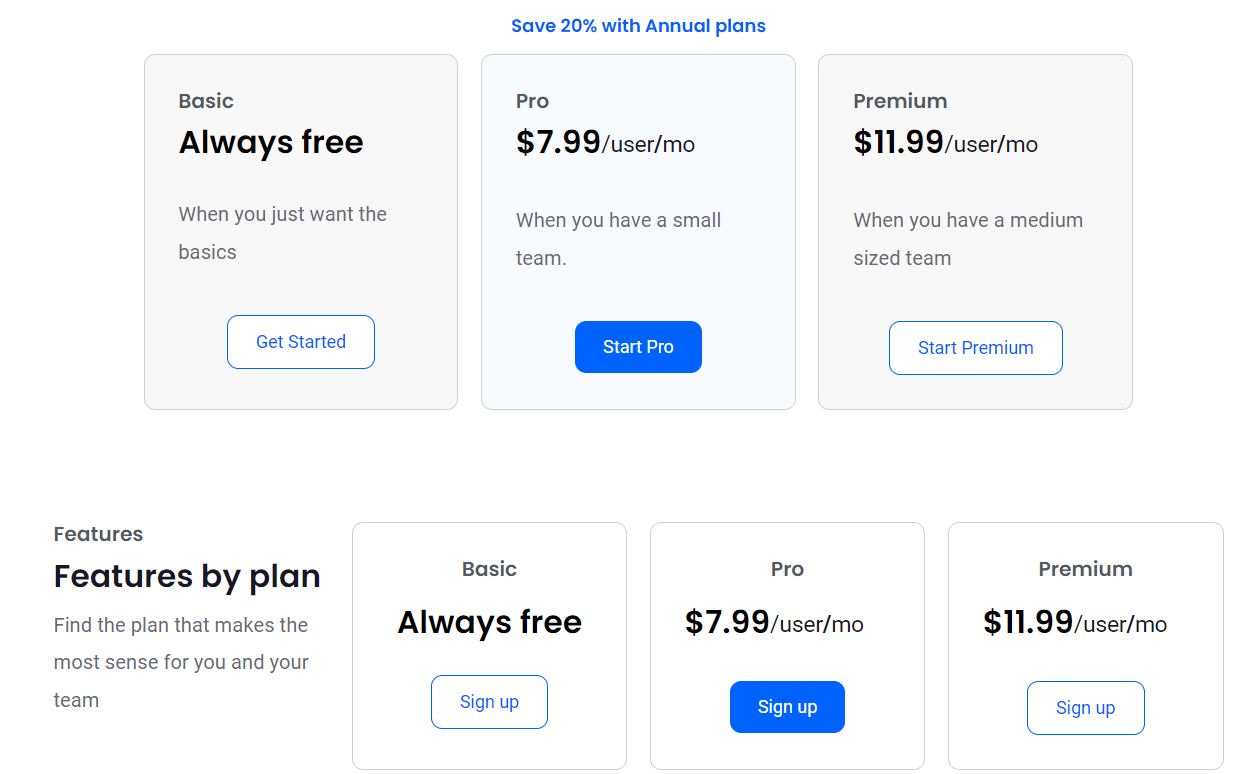
Stackby is a versatile platform that combines the power of spreadsheets with databases, providing a customizable workspace for data organization, project management, and collaboration.
Pros
Cons
Discover Stackby’s pricing options, ranging from free plans to premium tiers, ensuring you choose the package that best suits your business requirements.
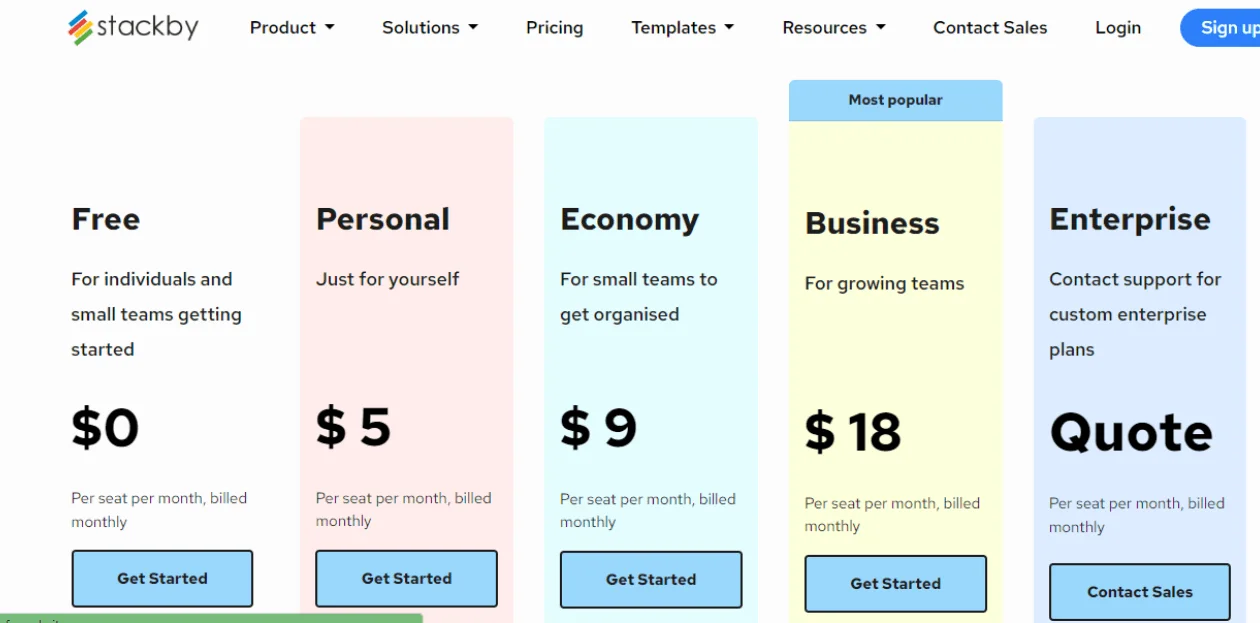
This unique platform simplifies data organization, analysis, and collaboration for teams, providing a user-friendly and intuitive experience. With Grist, businesses can effortlessly transform raw data into valuable insights and make informed decisions with ease.
Pros
Cons
Grist offers both free plans with limited features and premium plans with additional functionalities and increased data storage capacity.
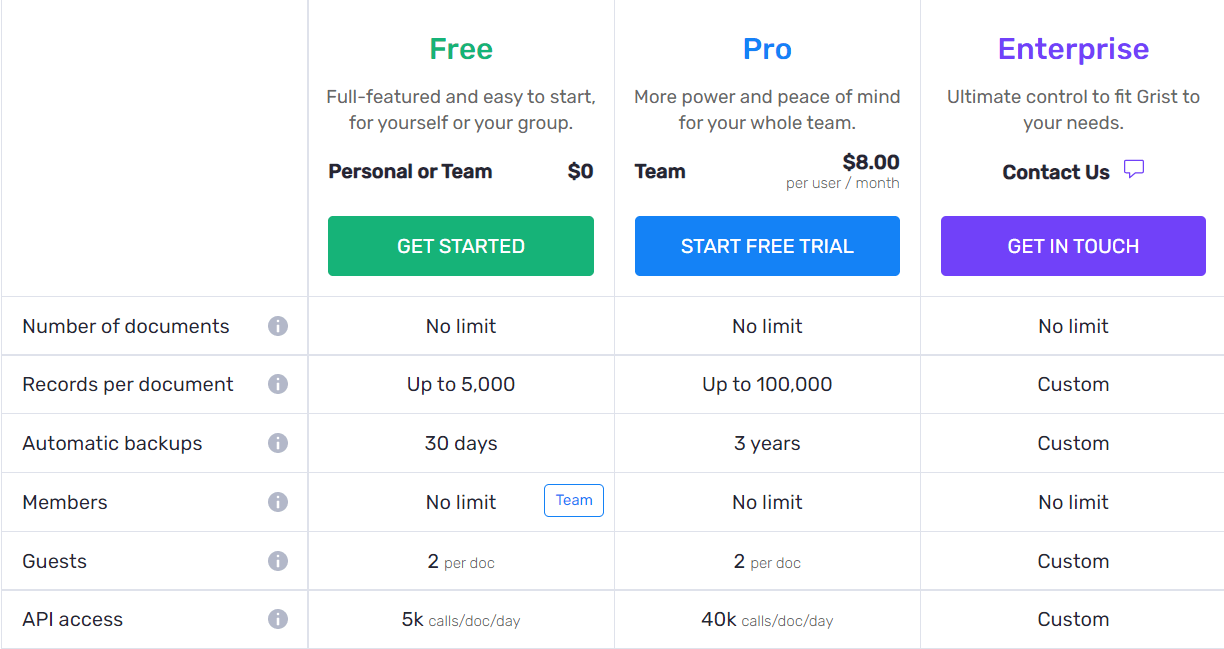
Asana is a popular project management tool that helps teams stay organized, collaborate effectively, and track progress. It offers features such as task management, project timelines, and team communication.
Pros
Cons
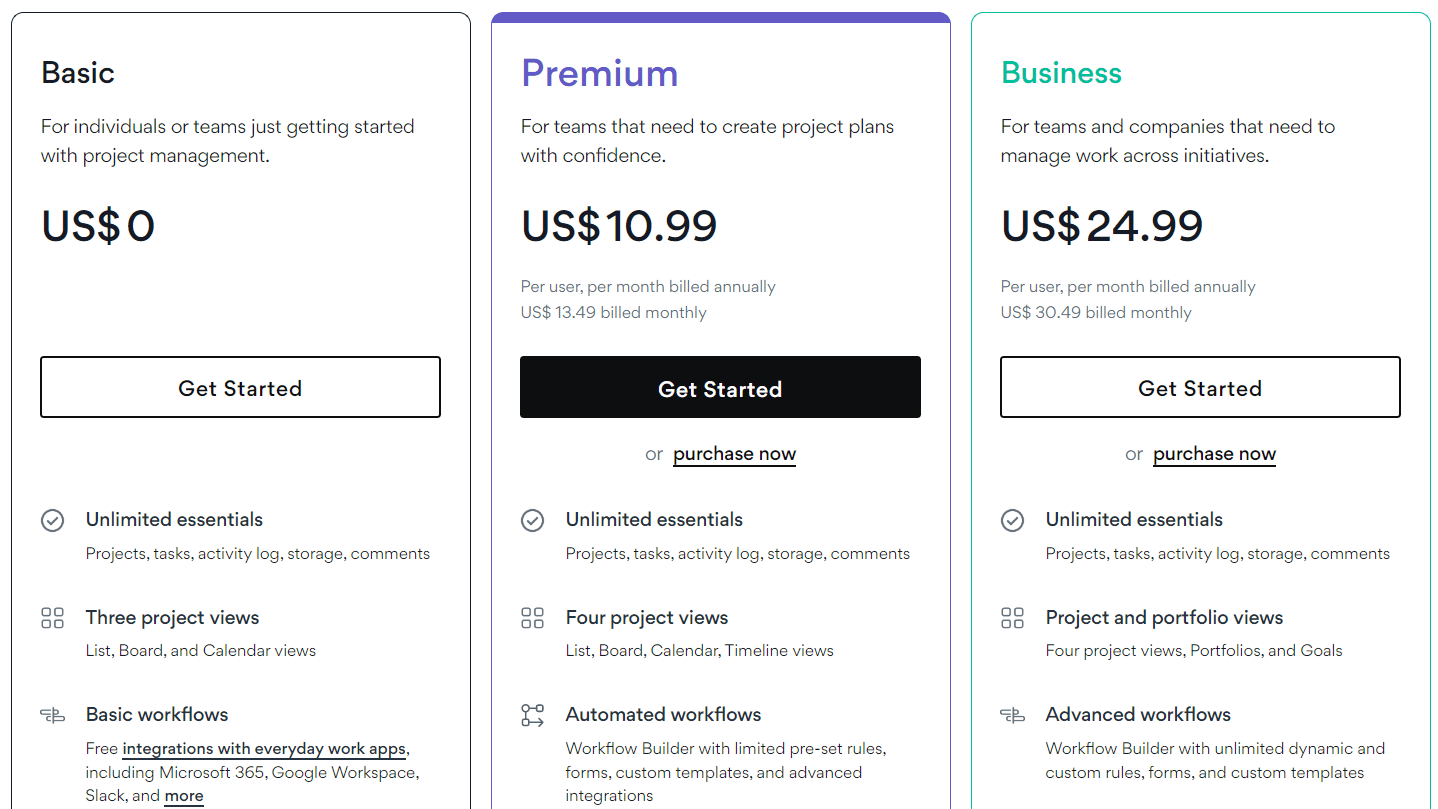
Basecamp is a project management and team collaboration platform that focuses on simplicity and streamlined communication. It offers features such as to-do lists, message boards, file sharing, and scheduling.
Pros
Cons
Basecamp has a flat monthly fee for unlimited users, making it a cost-effective option for teams of all sizes.
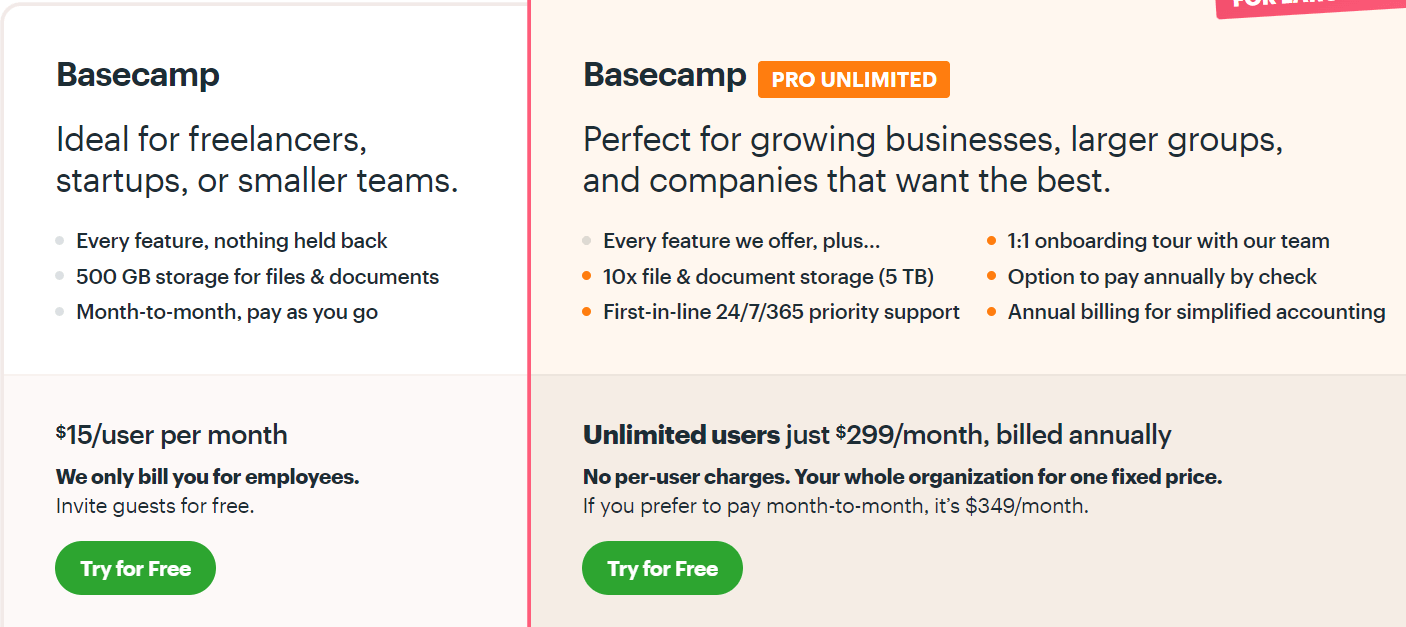
Monday.com is a project management and team collaboration platform that offers a visually appealing interface and customizable workflows.
It provides a range of features, including task management, project tracking, time tracking, and integrations with various tools.
Pros
Cons
The platform offers multiple pricing tiers, and some advanced features are only available at higher pricing levels, which may impact budget-conscious teams.
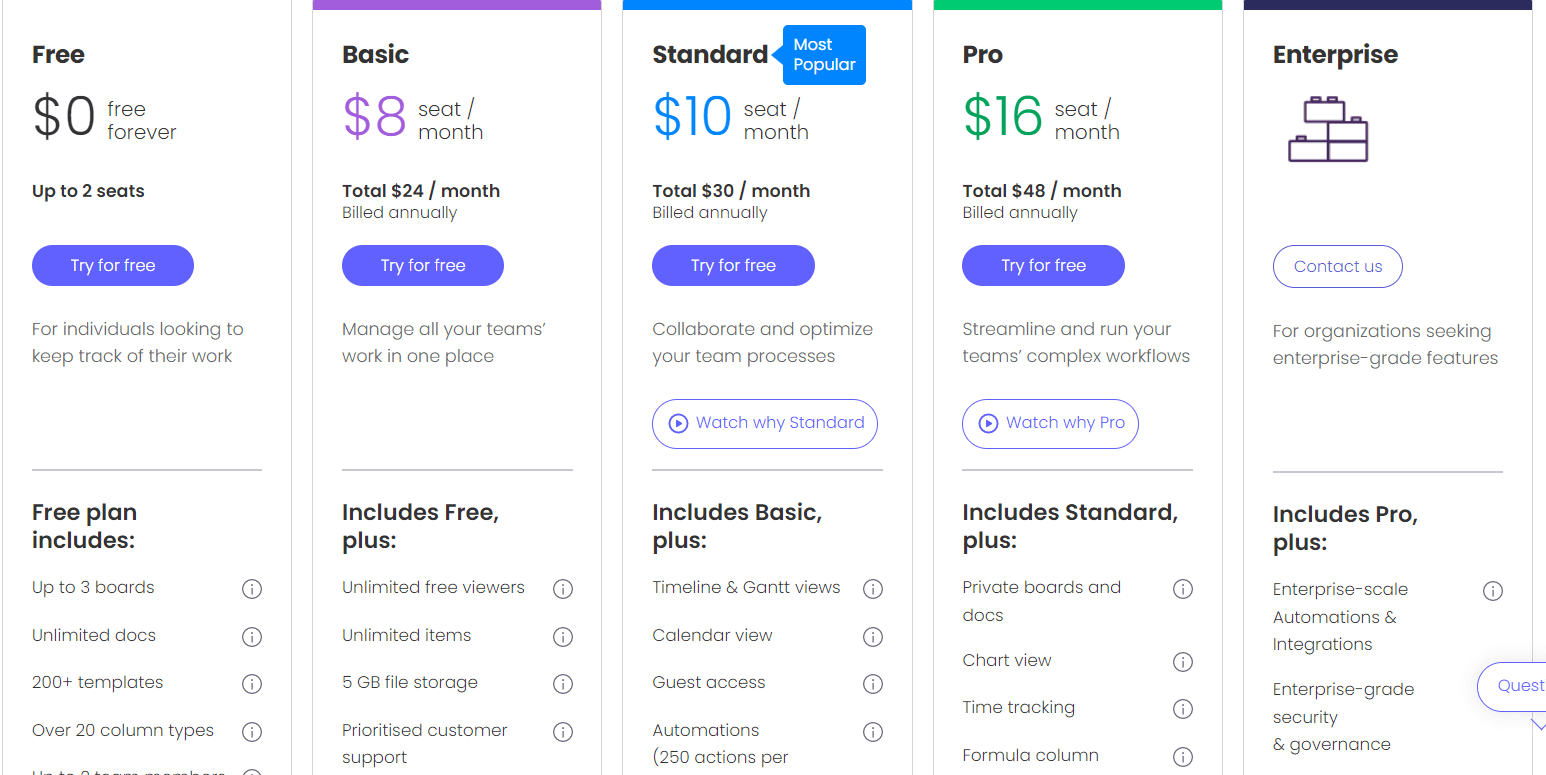
While Airtable has established itself as a popular data management tool, there may be specific scenarios where opting for a competitor could be advantageous.
Let’s explore some situations where choosing an alternative over Airtable might be the right move:
▶️Advanced Data Analysis
If your business requires in-depth data analysis
Then you might find competitors with more robust analytical capabilities to be a better fit.
▶️Industry-specific Requirements
Airtable’s capabilities may fall short when it comes to meeting the distinct data management requirements of certain industries. Industries such as finance, legal services, and healthcare often demand solutions that adhere to specific regulations, offer industry-specific templates, or seamlessly integrate with specialized tools.
Unfortunately, Airtable is unable to address these specific needs. In contrast, competitors like Clio cater precisely to the unique requirements of these industries.
▶️Enterprise-level Scalability
As your business expands and your data management needs become more extensive, you may find that Airtable is insufficient in handling the growing volume and complexity.
To effectively manage and process large-scale data, you may require a competitor that is capable of accommodating the increased demands and providing robust solutions.
▶️Team Collaboration and Communication
Undoubtedly Airtable offers good collaboration features.
However, if your primary focus is on team communication, task management, and workflow coordination, you might consider competitors like Monday.com or Jira.
They provide comprehensive project management capabilities with enhanced communication features.
Airtable and Excel are both tools used for managing and organizing data, but they differ in several key aspects:
⏩Structure: Excel follows a traditional spreadsheet structure, with rows and columns. Whereas, Airtable offers a more flexible structure that combines elements of spreadsheets and databases.
⏩Collaboration: Airtable puts a strong emphasis on real-time updates, commenting, and task assignments, making it ideal for teams working together on data management.
Excel, on the other hand, has limited collaboration features and is typically used more for individual data analysis and manipulation.
⏩User Interface: Airtable’s interface is designed to be intuitive and user-friendly, with a visually appealing layout that simplifies data entry and organization.
While Excel, on the other hand, can be more complex for new users owing to its steep learning curve.
⏩Integration and Automation: Excel provides integration with various tools and offers extensive automation options using Visual Basic for Applications (VBA).
Airtable, on the other hand, offers a growing list of integrations and has a built-in feature called “Automations” allowing users to create automated workflows.
Exploring the top Airtable alternatives in 2025 opens up a world of possibilities. Each alternative brings its unique strengths and advantages, catering to specific needs and preferences.
The choice between Airtable and its competitors ultimately depends on the specific needs of your business. This helps revolutionize your data management journey and streamline your operations.